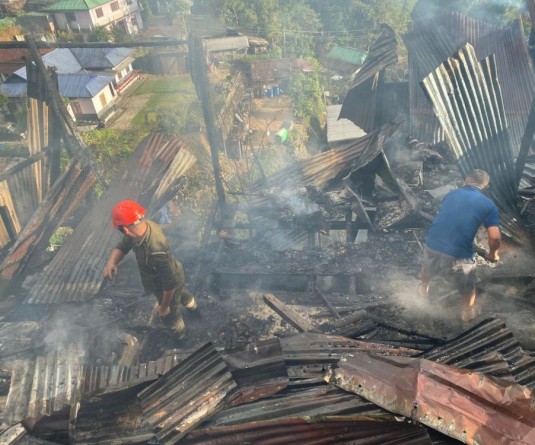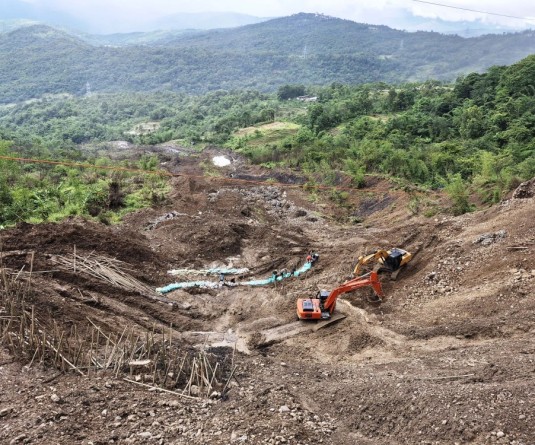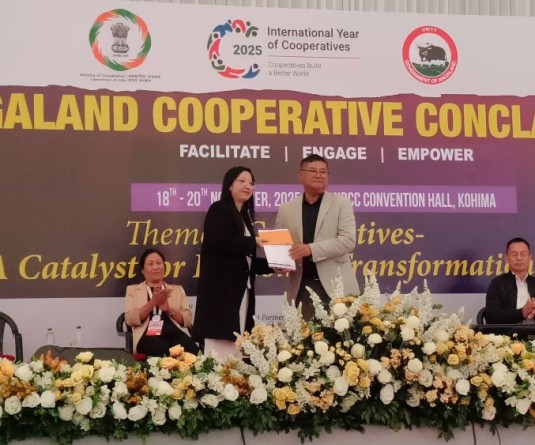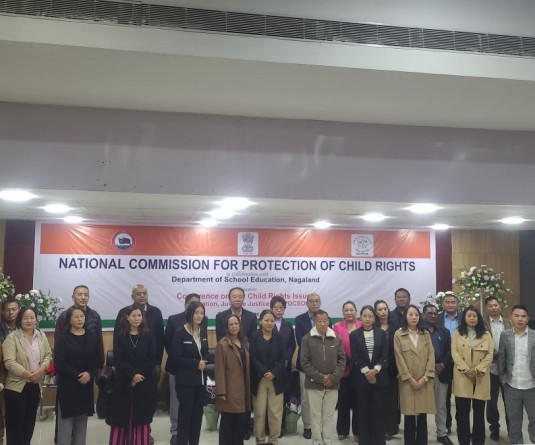
Our Correspondent
Kohima | June 7
The need to effectively deal with the disaster related incidents in Nagaland through Incident Response System (IRS) was stressed today in Kohima at the two day training programme on IRS organized by Nagaland State Disaster Management Authority (NSDMA) in collaboration with National Disaster Management Authority (NDMA).
IRS is an effective mechanism for reducing the scope for ad-hoc measures in response. It is required to be kept in place for effective response during massive disasters, where different departments and stakeholders may be involved.
In this regard, the NSDMA has identified suitable officers for the IRS system to organize orientation for all the officers involved in the IRS. The IRS incorporates all tasks that may be performed during disaster response and management irrespective of the level of complexity.
Chief Secretary Pankaj Kumar said the state has a peculiar weather circle with April to September as rainy season and dry season from October to March. Both the seasons are associated with different kinds of risk to disasters.
During raining season, the state faces the problem of landslides and flashfloods while in dry season (October to March), it witnesses the problem of drought in the agriculture areas and also fire incidents.
In recent years, the state has been experiencing changes in climate patterns, with increasing frequent and severity. There have also been incidents of lightning damaging property and even leading to fatalities.
The Chief Secretary said that another big challenge is earthquakes, which can come anytime as the state is in a vulnerable zone. He informed that serious efforts are being made to increase the capacity of those persons dealing with disaster related incidents.
A few years ago, training was imparted to the Village Guards to act as responders in the event of disasters. Certain companies of the armed forces were also trained and more recently a permanent set up of State Disaster Response Force (SDRF) was created in all the districts.
Further, training on youth in the villages has commenced so as to enable them to become responders in their respective areas.
Brigadier Kuldip Singh, consultant (ME & IRS) NDMA said the regions vulnerability with disaster is compounded by an expanded demographic, socio-economic conditions, unplanned urbanization, lack of stringent building norms, environment degradation, climate change etc. He further stated that all future infrastructure constructions should be disaster resilient.
NSDMA, Commissioner & Secretary, Khrienuo Metha said the IRS was developed by the National Disaster Management Authority (NSDA) in 2010 with a goal to handle disaster related incidents. Maintaining that IRS has proven to be a very effective mechanism, she said that after the training, the NSDMA hope to take it forward to a stage, where it would also develop IRS and work effectively throughout the state.
Additional Chief Secretary (Home), Temjen Toy said the NSDMA in its present form has been around with us for the past six years, during which a lot has happened. There has been increase in inventory equipments as well as in the capacity of the officers and workers. In the process, it has had to deal with several disasters, mostly flashfloods and landslides.






